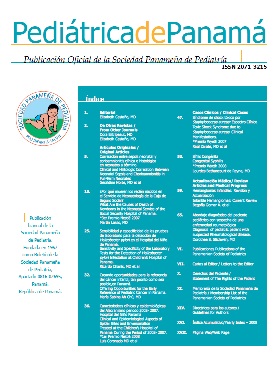Atypical Hemolytic Uremic Syndrome associated with Thrombomodulin genetic variant: a case report

Authors
DOI:
https://doi.org/10.37980/im.journal.rspp.32387Keywords:
Atypical Hemolytic Uremic Syndrome, Thrombomodulin, Proteins of the complement systemAbstract
Introduction: Atypical Hemolytic Uremic Syndrome (aHUS) is characterized by microangiopathic hemolytic anemia, thrombocytopenia, and acute renal failure, associated with genetic variations in the complement system, such as the THBD gene, responsible for 3-5% of hereditary cases. Case report: A patient with a history of Nephrotic Syndrome developed persistent anemia and thrombocytopenia. Analysis showed ADAMTS 13 activity at 50%. Genetic studies revealed a variant in THBD associated with complement dysfunction. Discussion: The genetic variant in THBD in our patient corresponds to those found in aHUS, which are less common. Complement dysfunction due to the absence of this protein explains the microangiopathy and renal impairment. Eculizumab was initiated early to prevent progression and improve prognosis. Conclusion: aHUS is heterogeneous with multiple genetic causes, including variations in THBD. Identifying these variants is crucial for guiding specific treatments such as Eculizumab, effective in inhibiting the complement pathway. Early genetic diagnosis and individualized management are key in aHUS for better long-term outcomes.
Downloads
Published
Issue
Section
License
Copyright (c) 2024 Infomedic Intl.Derechos autoriales y de reproducibilidad. La Revista Pediátrica de Panamá es un ente académico, sin fines de lucro, que forma parte de la Sociedad Panameña de Pediatría. Sus publicaciones son de tipo gratuito, para uso individual y académico. El autor, al publicar en la Revista otorga sus derechos permanente para que su contenido sea editado por la Sociedad y distribuido Infomedic International bajo la Licencia de uso de distribución. Las polítcas de distribución dependerán del tipo de envío seleccionado por el autor.






